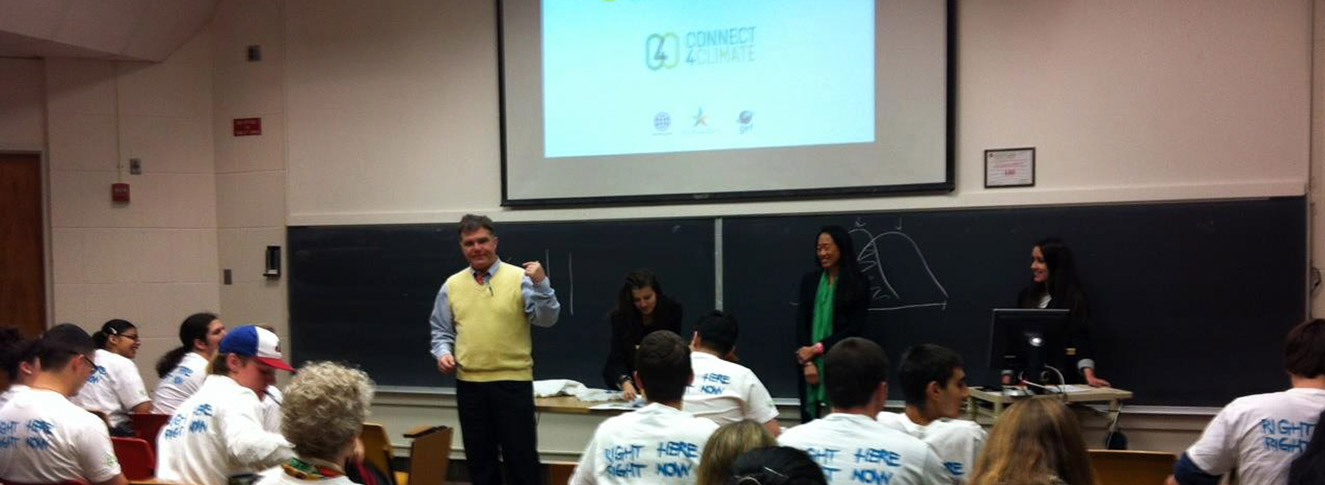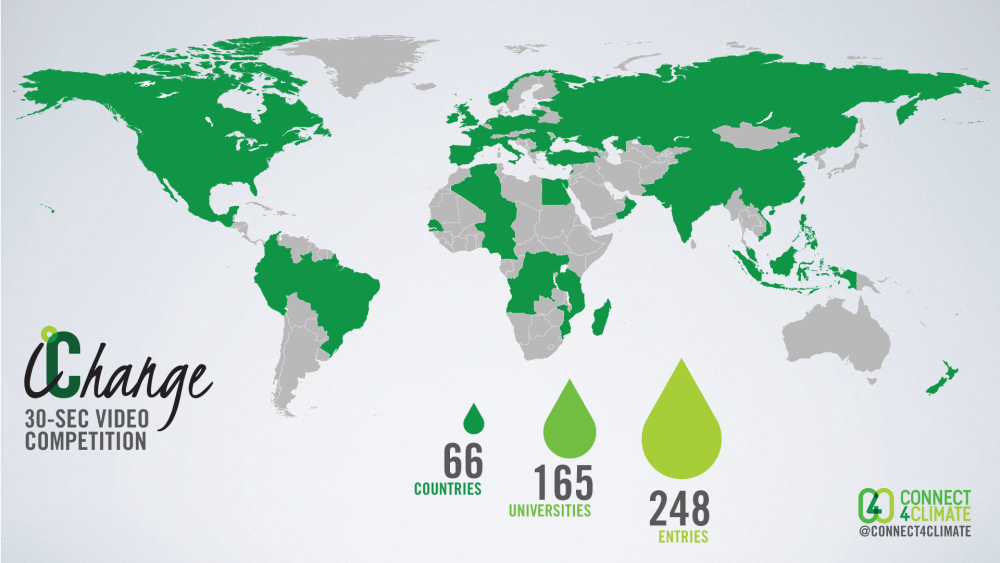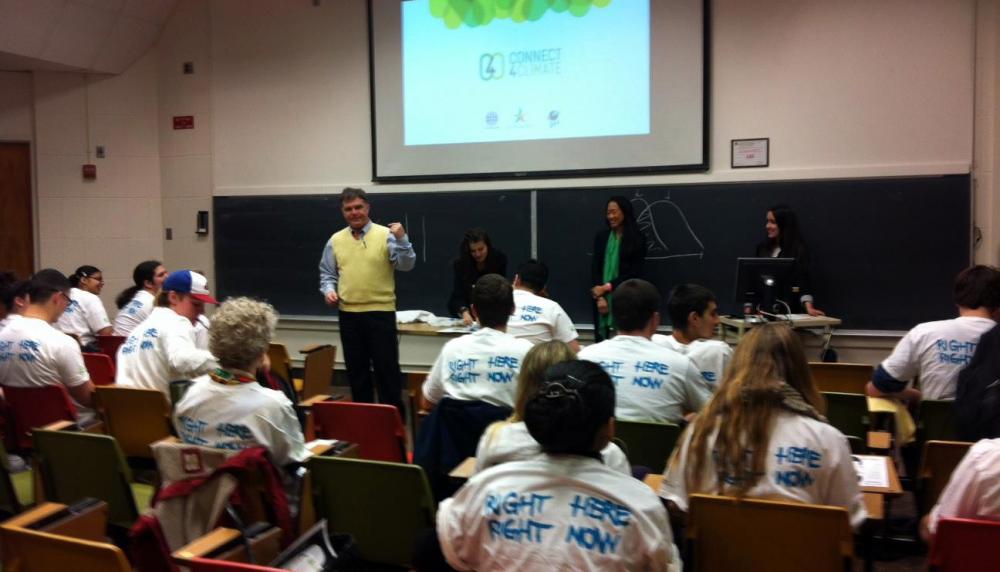
When it comes to climate change, people generally look towards experts for solutions. There is no doubt that scientists, policymakers, and thought leaders must collaborate to find a solution to this complex problem. But we have much to learn from a community that is often overlooked: university students.
When made aware, students are able to articulate and amplify climate change messages. At Connect4Climate, we set out to harness their peer power and facilitate students' ability to promote action, offer solutions, and inspire real change, with the launch of the iChange competition.
Students of the University of Maryland Contemporary Social Problems Class working on iChange competition videos with Professor Leszek Sibilski
The challenge set was for students from universities around the world to create powerful 30-second video messages on climate change issues and action. But creating short, sharp messages around a complex issue like climate change with little to no budget requires a fairly high level of technical skill, commitment, and an infinite amount of imagination. And so the question always was: will young people from around the world, some of whom had minimal access to the technology required, be able to pull it off?
Before we could answer that question, we first had to get them interested. Thanks to our private sector partner, TVN Media Group, we were able to offer very attractive prizes to the top five student teams. These included cash prizes (€5000 for the Grand Prize winner and €2000 for the four other finalists); internships with international marketing and communication firms; exposure for the students' videos at film festivals in Cannes, New York, and Beijing; and a trip to the awards ceremony at the 26th GrandPrix Advertising Strategies event in Milan.
We took a multi-tiered approach to marketing the competition to universities and students worldwide: we wrote directly to universities and distributed competition rules and materials in multiple languages; we asked our coalition of more than 150 partners to promote the competition amongst their youth networks and via their social media channels; and we made numerous presentations and conducted iChange workshops at local and international universities.
This combination of marketing strategies and appealing prizes paid off and helped us generate 248 entries from students enrolled in 165 universities from 66 countries around the globe. Although the five finalist videos chosen by an independent jury of film, media, and environment professionals were in English (from students in Lebanon, India, Norway, Italy, and Great Britain), the online popular vote winner was an entry in Spanish from a student in Colombia, and we received numerous entries in other languages (although English and French subtitles were highly encouraged).

More impressive than the success of the campaign however, is something that goes beyond the competition itself: with different voices, tools, and talents, students from Angola to Bhutan, Indonesia to New Zealand demonstrated the power of global youth participation and creativity when thy were asked to confront a pressing global issue that will impact their future. Students from around the world rose to the challenge and presented multiple facets of the same problem, putting climate change in a local context, while still situating it within a broader global perspective. There were no national or financial barriers in their imaginations, just a willingness to be creative and be part of a call to action.
By posing a creative challenge around a global problem, the iChange competition attracted entries that were hybrids of visual storytelling and science, each story imbued with a very personal sense of self-expression. Of the total number of video entries, many were moving, some were humorous, but all showed the diverse ways one can promote action. It is desire to take action, rather than simply debate the problems, that makes students and the youth brilliant advocates and activists. But they must be given the right opportunities, and the right information.
From the results of this competition, it is clear that climate change matters, not just to students in the global north but to those from all four corners of the world. They are worried about their future and want to help preserve the planet. More than ever, we must not undervalue the global student community but instead engage, collaborate, and listen.
We learned through iChange that if you are able to tap into national and regional networks, share information in local languages; communicate the sense of being part of a bigger movement; make the ask clear and provide the right incentives, then young people can achieve what their politicians sometime struggle to do: speak with singular clarity about the issues that matter. As the president of the World Bank, Jim Yong Kim, said: "We need young people to lead on a social movement for climate by saying, 'Come on old folks, you may be gone by the time this hits, but our world is going to be awful and we need to work together to prevent this …'"
This content was originally posted on the Guardian Development Professional's Network.




